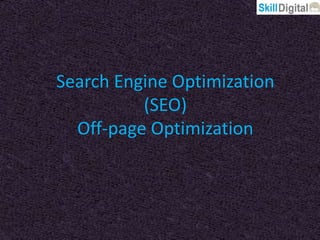Analysis and Monitoring as Prerequisites for Onpage Optimization
by Admin
Posted on 28-09-2023 08:28 AM

Effective onpage optimization requires a combination of several factors. Two key things to have in place if you intend to improve your performance in a structured way are analysis and regular monitoring. There is little benefit in optimizing the structure or content of a website if the process isn’t geared towards achieving goals and isn’t built on a detailed assessment of the underlying issues.
 In extreme cases, optimization measures that aren’t based on a solid, evidence-based plan can have the opposite effect to that desired – potentially harming the stability of keyword rankings or creating a drop in conversion rates.
In extreme cases, optimization measures that aren’t based on a solid, evidence-based plan can have the opposite effect to that desired – potentially harming the stability of keyword rankings or creating a drop in conversion rates.
http://digitalmarketingvn.s3-website.us-east-2.amazonaws.com/marketing-digital-agency/Analysis-and-Monitoring-as-Prerequisites-for-Onpage-Optimization.html
Elements of Onpage Optimization
The words used in the metadata tags, in body text and in anchor text in external and internal links all play important roles in on page search engine optimization (seo).
 The on-page optimization analysis free seo tool lets you quickly see the important seo content on your webpage url the same way a search engine spider views your data. This free seo onpage optimization tool is multiple onpage seo tools in one, helpful for reviewing the following onpage optimization information in the source code on the page:
metadata tool: displays text in title tags and meta elements
keyword density tool: reveals onpage seo keyword statistics for linked and unlinked content.
The on-page optimization analysis free seo tool lets you quickly see the important seo content on your webpage url the same way a search engine spider views your data. This free seo onpage optimization tool is multiple onpage seo tools in one, helpful for reviewing the following onpage optimization information in the source code on the page:
metadata tool: displays text in title tags and meta elements
keyword density tool: reveals onpage seo keyword statistics for linked and unlinked content.
3. Internal links and structure
Internal links are hyperlinks that point to different pages on the same site. Here’s what an internal link looks like on a webpage: internal links are an important part of on-page seo optimization. Here’s why: they help search engines understand your site’s structure and how pages are related to each other they allow google crawlers to discover and navigate to new pages they signal to google that the linked-to page is valuable they help users navigate through your website (and keep them on your site longer) adding internal links from one page to another signals to google that these pages are related. And helps google understand whether the pages could match a user’s search intent—which can help your rankings.
We’ve talked a lot about on-page seo, but there’s also something known as off-page seo. The difference, as you could probably tell by the names, is where it happens. On-page seo is everything you can do internally to boost your rankings, including keyword optimization, meta descriptions, title tags, alt text, and website structure. Off-page seo is all the things that happen externally that impact your site’s rankings. This includes backlinks, e-a-t, local seo, social media mentions, and pay-per-click. Obviously, you have a lot more control over your on-page seo, but it’s important to keep off-page seo in mind as well – you need both to get where you want to go.
On-page optimization is the process of optimizing the elements on your website for search engines. This includes optimizing content, site structure, keywords, meta tags, internal links, and images. All of these factors play an important role in improving the visibility of your website in search engine results. Content quality is an important factor in on-page optimization. Content should be well-written, relevant, and comprehensive. Site structure should be organized in a way that is easy for search engine spiders to crawl. Keyword research should be used to identify the best phrases to target for organic search engine rankings. Meta tags should be optimized with relevant keywords to improve click-through rates.
Internal linking is important in on-page seo because of the following reasons – it helps search engines in understanding the overall structure of your website and also helps in checking page relevancy. Internal links help search engines for crawling and discover new pages. Your website will get a better ranking if the linked page is related to user search intent. Internal links will help your audiences to increase engagement and navigate through your website for a longer period of time.